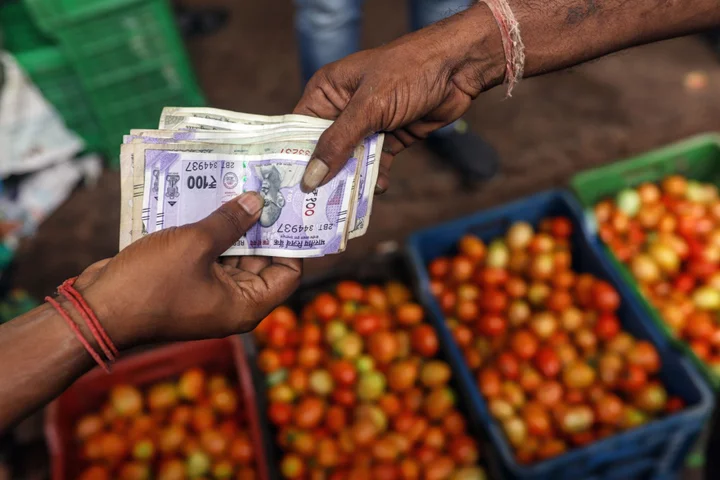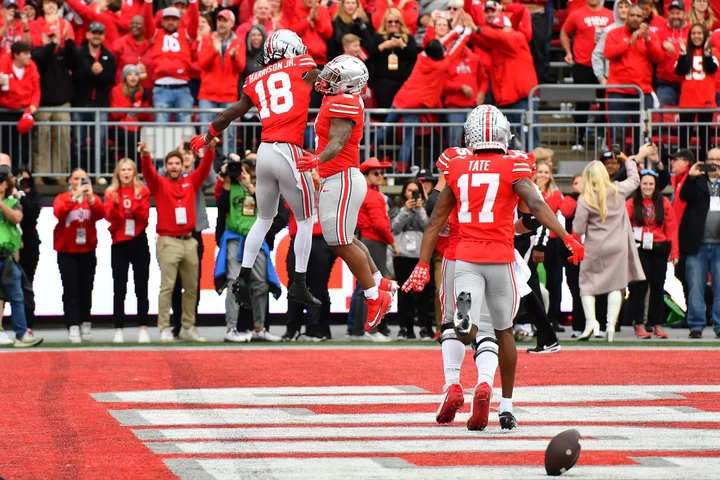India’s rate setters looked past the recent spike in food inflation but pledged to act tough if price pressures persist, according to the minutes of the August monetary policy meetings released Thursday.
The Reserve Bank of India’s six-member monetary policy committee paused for the third straight review and asked banks to set aside more cash to mop up excess liquidity, signaling heightened concern over soaring prices.
“While the vegetable price shocks are expected to correct quickly with the arrival of fresh crops, there are risks to the food and the overall inflation outlook from El Nino conditions, volatile global food prices and skewed monsoon distribution - all of which warrant close monitoring,” said Governor Shaktikanta Das.
Softening of core inflation — which strips out volatile food and fuel prices — is still at an elevated level, Das said, adding that policymakers need to be ready to preempt any second-round impact of food price shocks.
India’s retail inflation accelerated to a 15-month high of 7.44% in July, driven by an increase in food prices and boosting the odds of more rate hikes. Food inflation, which accounts for nearly half of the overall consumer price basket, rose to 11.51%, registering its highest level since April 2020.
To contain prices, the government has curbed exports of rice, wheat and sugar, and restricted stockpiling of some crops.The southwest monsoon, which waters about half of India’s farmlands, remains uneven. Policymakers are also worried about El Nino intensifying as it could bring drier weather and hurt crop yields.
Food price flares can permeate through wages, rents and transport costs, Das’s deputy Michael Patra said. “Ensuring the sustained easing of core inflation is crucial to the MPC’s objective of bringing inflation down to the target.”
Jayanth Rama Varma, who voted against the stance, said its meaning has “completely hollowed” out. He said the current level of the repo rate was high enough to bring inflation within the 2%-6% target range.
Here’s what other members in the panel said:
- Shashanka Bhide, an external member in the panel, said while the broadening of price pressures would be a concern, rate-setters will also watch for the impact of weak exports on growth. The spike in energy prices also pose a significant challenge to maintaining domestic price stability, he said
- Ashima Goyal, another external member in the panel, said preemptive supply-side action that prevents repeated or persistent food price shocks would abort second round increase in wages that could require further monetary tightening
- Rajiv Ranjan, an executive director at RBI, said the MPC’s job is “not yet fully over” as the impact of its past actions plays out in the economy









